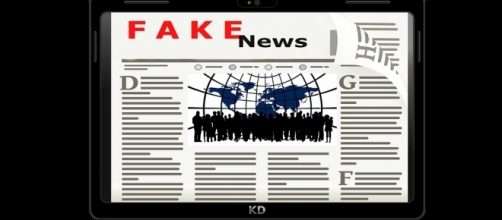Many should be familiar by now with the phenomenon of Fake News. When the affairs of the presidential election became mainstream news, especially when it involved Donald Trump, fake news rose to attention-worthy eyes in the same way regular news does these days, through social media.
Fake news, really, is a certain type of propaganda, click bait that lures mass audiences in, and offers hyperbolic narratives that are usually biased towards a particular political group. And it is believed that this, what can be termed yellow journalism, had enough leverage to have swayed the outcome of the election.
The reality of fake news
There was a time when Mark Zuckerberg even denied the reality of fake news, more likely than not to preserve the credibility of his own social platform Facebook, in all likelihood the largest distributor of fake news. He once contested that fake news made up an insignificant amount of Facebook content and it is “crazy” to presume that it could have any effect on the election.
Later, he did not refute his main argument, but he added that he is glad to hear that Facebook has such an impact on civic discourse and gives a voice to so many people.
But since his initial defense, he's done a 180°. Facebook has launched a full-frontal attack on fake news. Starting with the Facebook Journalism Project, Campbell Brown, a former CNN host, was also contracted to supervise Facebook news partnerships, and fake new stories are now being flagged via the help of Facebook's new partners Snope and PolitiFact.
The attack on journalism
Donald Trump, before his victory, often cited fake news to be the sole cause of any of his failures as it appeared in media. Calling journalists “among the most dishonest human beings on earth” on his very first day in office, what Trump labels fake news is usually what others would identify as reliable sources, those like CNN or the New York Times.
The issue with this being that Trump sees anything that does not paint him in a positive light – which sometimes seems hard not to do nowadays – as evidence of bias, and has gone so far as to block mainstream press, even the Times, from an important government-related meeting at the White House and beyond.
His other response to all the controversy came later than when “fake news” was the most popular in search engines.
That said, it is more than worth looking into.
What is ‘Real News’?
Trump meets fake news with “Real News”, a video series that debuted circa the end of July and is distributed via his Facebook, in which one of his very first videos featuring a former CNN reporter got half a million views within four hours. That’s as much viewing as most cable television networks get!
The video mostly boasted about economic success and the upcoming RAISE Act that would tighten immigration policy. Unfortunately, “Real News” forgot to mention a few particulars: that the unemployment rate is down, certainly, but for all the work of Obama during his administration, where he left it at 4.8 percent. (The unemployment rate at the moment is 4.3, nearing its lowest since 2001.) To boot, the gross domestic product, or GDP,– considered to be the true measure of the country's economy– has remained brashly stagnant, and wages have seen no change, and have minutely dropped.
Another growing concern is that the RAISE Act proposes cutting the amounts of immigrants able to receive green cards in half over the next ten years, and would actively discourage family-based immigration. The bill, altogether, is an offense on decidedly legal immigration, what conservatives and liberals alike rely on to relieve themselves of xenophobia. It has become clear, then, that the i-word is not the real problem.
Spreading false information
In the same vein in regards to what is superficially left out of the discussion,– like the legal immigrants that the government supposedly supported only to later vilify– it is likewise concerning that false information has the ability to reach so many, whilst leaving out so much.
If “Real News” has the same kind of power that fake news did, then journalism, and truth as the world knows it, might be at risk.


